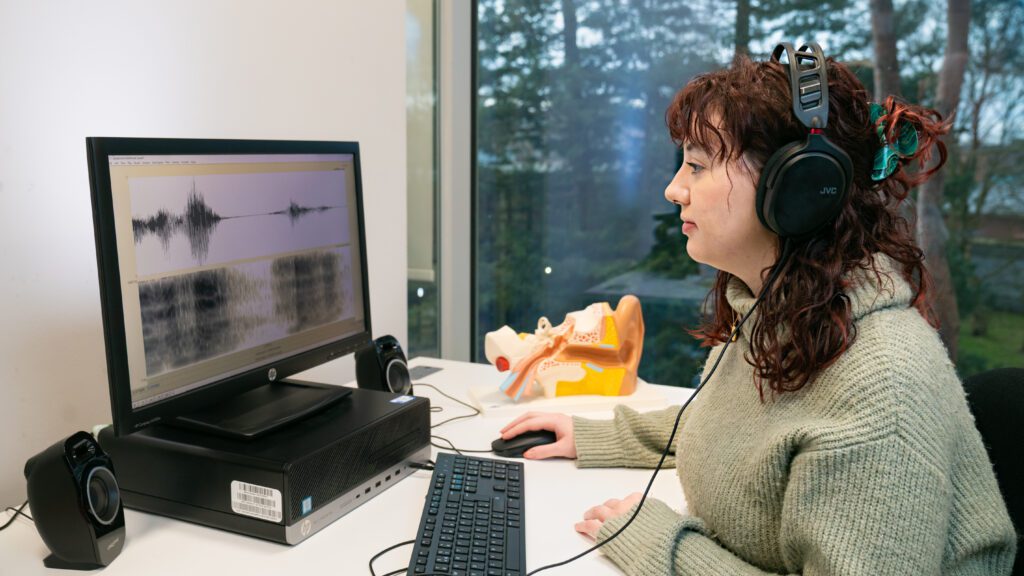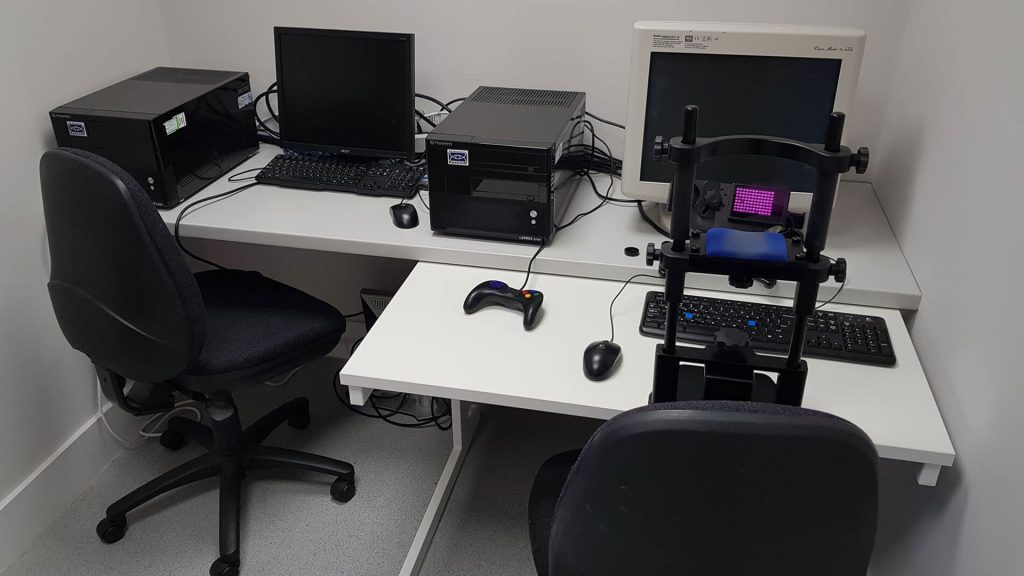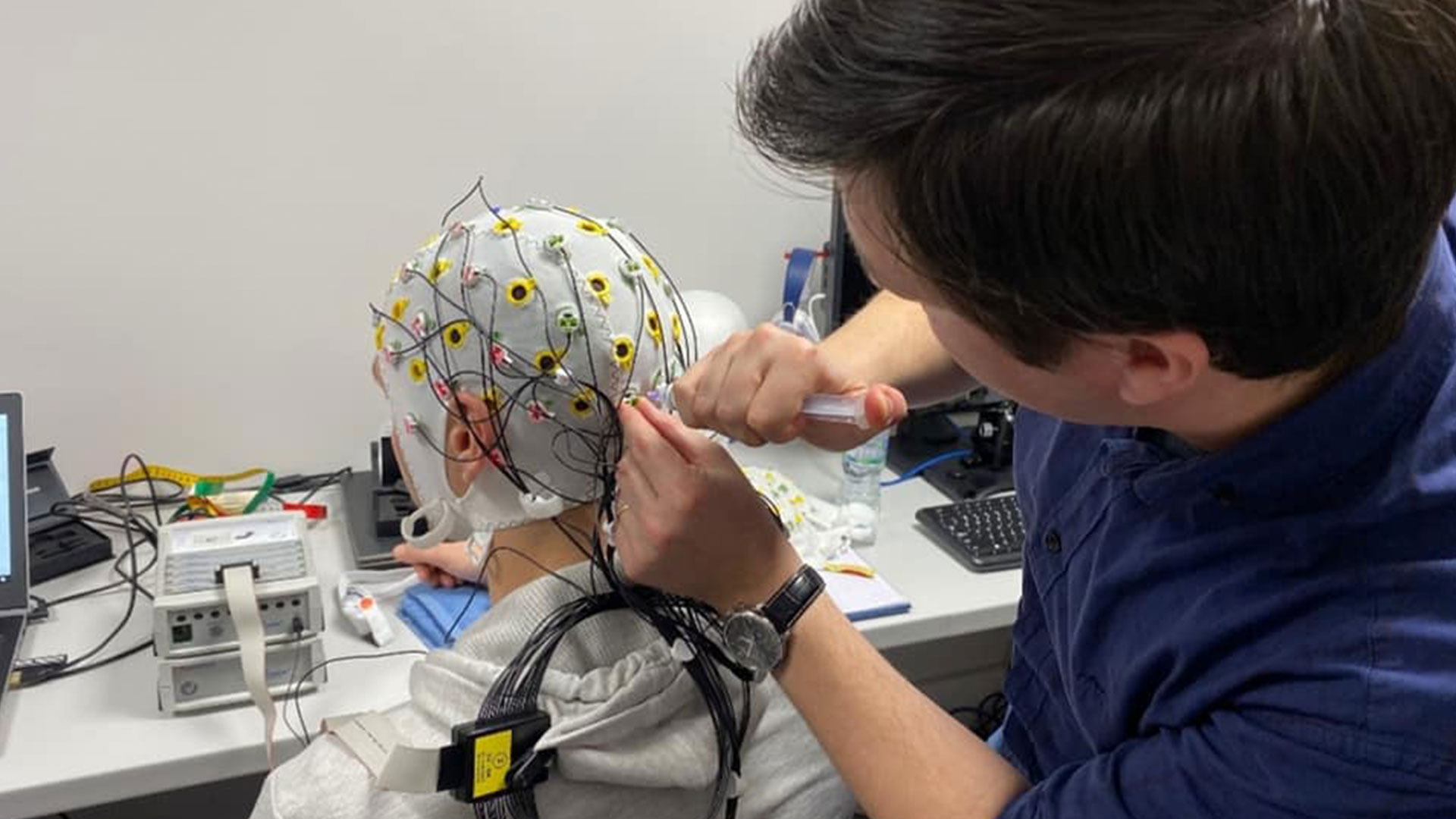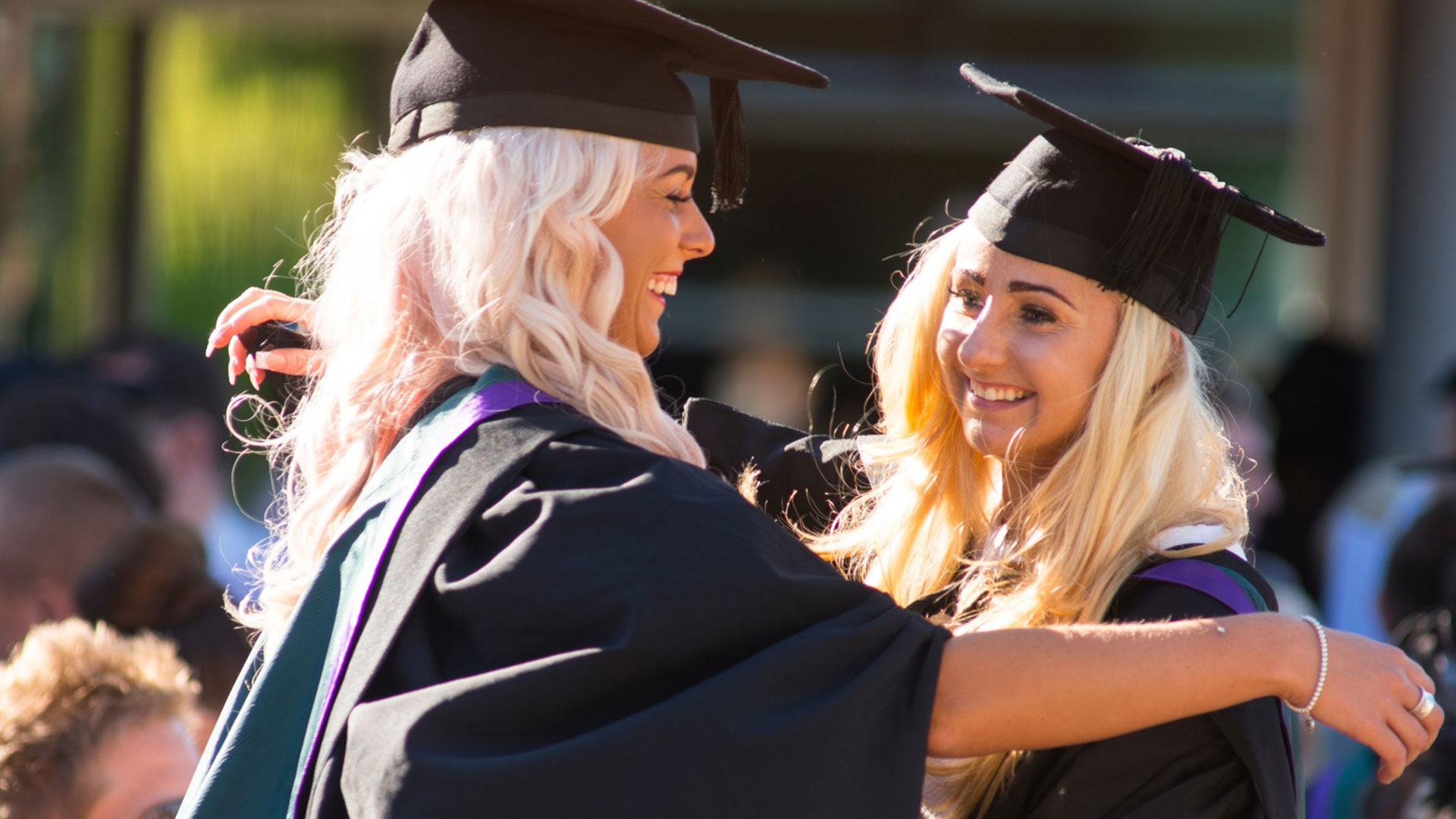The Sensing Brain
Is the way we perceive the world influenced by our beliefs or personality? What information does our voice convey? What makes cancer difficult to spot in medical images? Human beings have diverse responses to the sensory world, and one of our aims is to promote public understanding of the nature of these processes.

The Sensing Brain focuses the relationship between the sensory world, cognition, behaviour, and movement. We pool our expertise to pursue multimodal approaches to some of the classic problems of cognition, such as categorisation and action planning. To address our research questions we use different techniques: eye-tracking, brain stimulation techniques (TMS and tDCS), measurement and analysis of brain and physiological responses (EEG, MEG, and fMRI), reverse correlation and psychophysics.
Current research projects
Here are some of our ongoing research projects:
- Looking for Cancer: Eye Movements in Medical Image Perception (Dr Damien Litchfield)
- The effect of feedback on mood and motivation in different ambient light conditions (Dr Elena Spiridon)
- Perceptual correlates of the authoritarian personality trait (Dr Valeria Occelli & Dr Nicola van Rijsbergen)
- The response of auditory and visual neural activity to arousing stimuli (Dr Andrea Piovesan)
- Perception of time in pain experience (Dr Andrea Piovesan)
- Challenging ocularcentric bias: Transforming media’s view of blindness (Dr Valeria Occelli)
- Feeling voices and sensing emotions: Subtypes of Alexithymia (Dr Nicola van Rijsbergen)
- Response to uncertainty and Authoritarian personality traits (Dr Nicola van Rijsbergen)
- Perceptions of Autistic and Non-Autistic Voices During Special Interest Conversations (Dr Michel Belyk, Dr Valeria Occelli, & Dr Andrea Piovesan)
- How to tingle: Reliable elicitors of the Autonomous Sensory Meridian Response (ASMR) (Dr Michel Belyk)
- Perception of qualities in typefaces (Dr Andrea Piovesan)
- Imagining is doing: behavioural effects and neural correlates of motor imagery (Dr Antonio Capozio)
Key projects
Featured projects
Combining senses to understand the world
Dr Valeria Occelli explores how we process and integrate sensory information, and how these processes change as a consequence of neurological conditions or sensory deprivation.
See Dr Valeria Occelli's researchEye Movements of Experts
Dr Damien Litchfield explores how eye movements change and become more efficient as a function of domain-specific expertise. He is particularly interested in visual expertise in medical image perception.
See Dr Damien Litchfield's researchMembers
- Dr Valeria Occelli (Group Coordinator)- multisensory perception, sound, touch, blindness, fMRI, MEG, psychophysics
- Dr Damien Litchfield- eye-movements, visual search, visual expertise
- Dr Michel Belyk– Human voice, speech and language, stuttering, fMRI
- Dr Antonio Capozio– non-invasive brain and spinal stimulation to induce neural plasticity, neurorehabilitation, neural pathways underlying movement
- Dr James Brand –psycholinguistics, sound symbolism, socio-semantics.
- Dr Andrea Piovesan– Time perception, perception of fonts, skin conductance, ECG
- Dr Nicola van Rijsbergen– categorisation, emotional responses, Alexithymia, MEG, EEG, reverse correlation
Our Facilities




Engaging with our stakeholders
Our Sensing Brain research has many applications for the general public, practitioners and policy-makers. These are some examples of the impact our work.
Raising awareness of experiences of blindness
“What is Blindness? The World Unseen” uses cinematography and live interactions to explore personal stories of visual impairment and challenge societal misconceptions around it. This is based on the insights gained from Dr Valeria Occelli and colleagues’ co-created research with Royal School For The Blind Liverpool, St Vincent’s School, Bradbury Fields, and New College Worcester.
Supporting neurosurgeon trainees to work under pressure
Neurosurgical trainees are often faced with difficult cases and scenarios which can be complex and challenging. Dr Antonio Capozio‘s insights about thinking and decision-making have helped bring Neuroscience into Neurosurgery as part of Edge Hill’s “Prevention and management of neurosurgical complications” CPD course.
Get Involved
There are various ways you can get involved in our Sensing Brain research.
Contact
If you would like to find out more about our Sensing Brain Research group, please get in touch with the group coordinator





